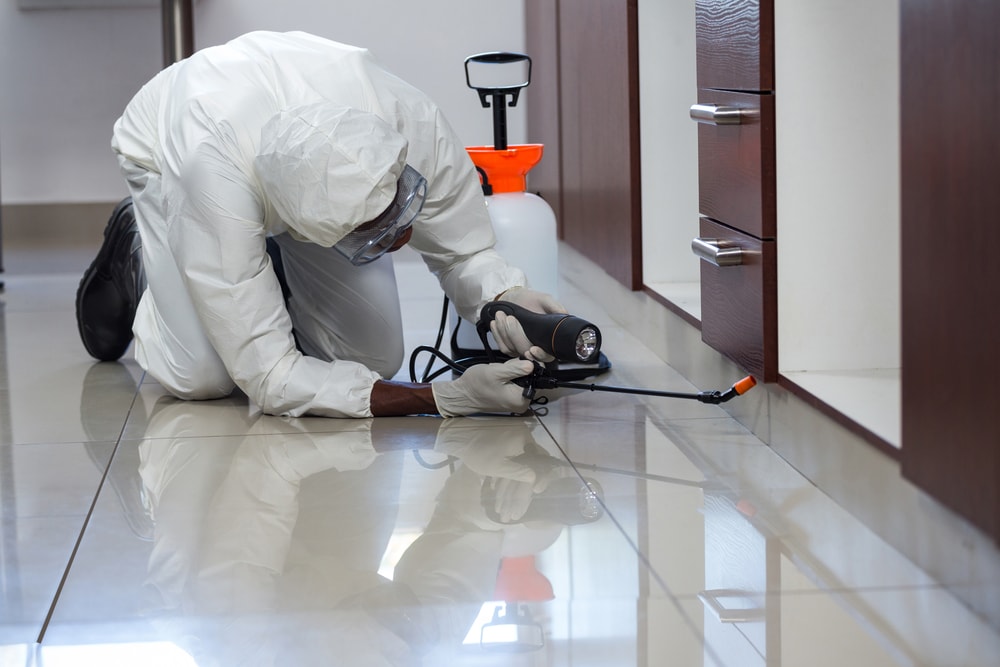Who Is Responsible For Pest Control When Renting, one common issue that tenants may encounter is pest infestation. Whether it's ants, mice, cockroaches, or other unwanted critters, understanding who is responsible for pest control can be confusing. Both landlords and tenants have certain obligations, and determining responsibility often depends on the cause of the infestation, the terms of the lease agreement, and local laws.
Read Also: Are Landlords Responsible For Pest Control?
Who Is Responsible For Pest Control When Renting? Step By Step Guide

1. Landlord's Responsibilities for Pest Control
In most cases, landlords are responsible for maintaining the property in a habitable condition. This includes ensuring that the property is free from pests at the time of move-in. Pest infestations, particularly those related to structural issues (such as gaps in walls or poor sanitation), fall under the landlord's responsibility to fix. Some key landlord responsibilities include:
Providing a pest-free property at move-in: The landlord must ensure that the home is clean and pest-free when the tenant moves in. If an infestation is present, it is generally the landlord's duty to resolve the issue before the tenant occupies the property.
Regular maintenance: If pests enter the property due to structural issues (like broken seals on windows or cracks in walls), the landlord must address these problems and Who Is Responsible For Pest Control When Renting.
Health and safety standards: Many local laws require landlords to maintain health and safety standards, which includes controlling pest infestations. Failure to do so could result in penalties for the landlord.
2. Tenant's Responsibilities for Pest Control
While landlords are typically responsible for pest control, tenants also have duties related to maintaining a clean and healthy living space. Poor housekeeping or not properly disposing of trash can contribute to pest problems. Tenants are responsible for:
Keeping the property clean: Tenants must ensure that their home is clean and free of food debris that might attract pests. If the tenant's living habits lead to an infestation, they could be held responsible for resolving it.
Reporting infestations promptly: Tenants should notify their landlord as soon as they notice signs of pests. Delaying a report can exacerbate the problem, and failure to report it may shift responsibility to the tenant.
Preventing further infestations: Once a landlord has arranged for pest control, tenants are expected to maintain a pest-free environment through cleanliness and proper waste disposal.
3. What Does the Lease Agreement Say?
The lease agreement plays a significant role in determining who is responsible for pest control. In some cases, the lease may explicitly state that the tenant is responsible for all pest control services, especially if the infestation is related to tenant behavior. Other times, the lease may require the landlord to provide pest control services on a regular basis, regardless of the infestation's cause.
It’s important to review the lease carefully and discuss any unclear terms with the landlord before signing.
Must Read: Do It Yourself Pest Control?
Who Is Responsible For Pest Control When Renting, one common issue that tenants may encounter is pest infestation. Whether it's ants, mice, cockroaches, or other unwanted critters, understanding who is responsible for pest control can be confusing. Both landlords and tenants have certain obligations, and determining responsibility often depends on the cause of the infestation, the terms of the lease agreement, and local laws.
Read Also: Are Landlords Responsible For Pest Control?
Who Is Responsible For Pest Control When Renting? Step By Step Guide
1. Landlord's Responsibilities for Pest Control
In most cases, landlords are responsible for maintaining the property in a habitable condition. This includes ensuring that the property is free from pests at the time of move-in. Pest infestations, particularly those related to structural issues (such as gaps in walls or poor sanitation), fall under the landlord's responsibility to fix. Some key landlord responsibilities include:
Providing a pest-free property at move-in: The landlord must ensure that the home is clean and pest-free when the tenant moves in. If an infestation is present, it is generally the landlord's duty to resolve the issue before the tenant occupies the property.
Regular maintenance: If pests enter the property due to structural issues (like broken seals on windows or cracks in walls), the landlord must address these problems and Who Is Responsible For Pest Control When Renting.
Health and safety standards: Many local laws require landlords to maintain health and safety standards, which includes controlling pest infestations. Failure to do so could result in penalties for the landlord.
2. Tenant's Responsibilities for Pest Control
While landlords are typically responsible for pest control, tenants also have duties related to maintaining a clean and healthy living space. Poor housekeeping or not properly disposing of trash can contribute to pest problems. Tenants are responsible for:
Keeping the property clean: Tenants must ensure that their home is clean and free of food debris that might attract pests. If the tenant's living habits lead to an infestation, they could be held responsible for resolving it.
Reporting infestations promptly: Tenants should notify their landlord as soon as they notice signs of pests. Delaying a report can exacerbate the problem, and failure to report it may shift responsibility to the tenant.
Preventing further infestations: Once a landlord has arranged for pest control, tenants are expected to maintain a pest-free environment through cleanliness and proper waste disposal.
3. What Does the Lease Agreement Say?
The lease agreement plays a significant role in determining who is responsible for pest control. In some cases, the lease may explicitly state that the tenant is responsible for all pest control services, especially if the infestation is related to tenant behavior. Other times, the lease may require the landlord to provide pest control services on a regular basis, regardless of the infestation's cause.
It’s important to review the lease carefully and discuss any unclear terms with the landlord before signing.
Must Read: Do It Yourself Pest Control?